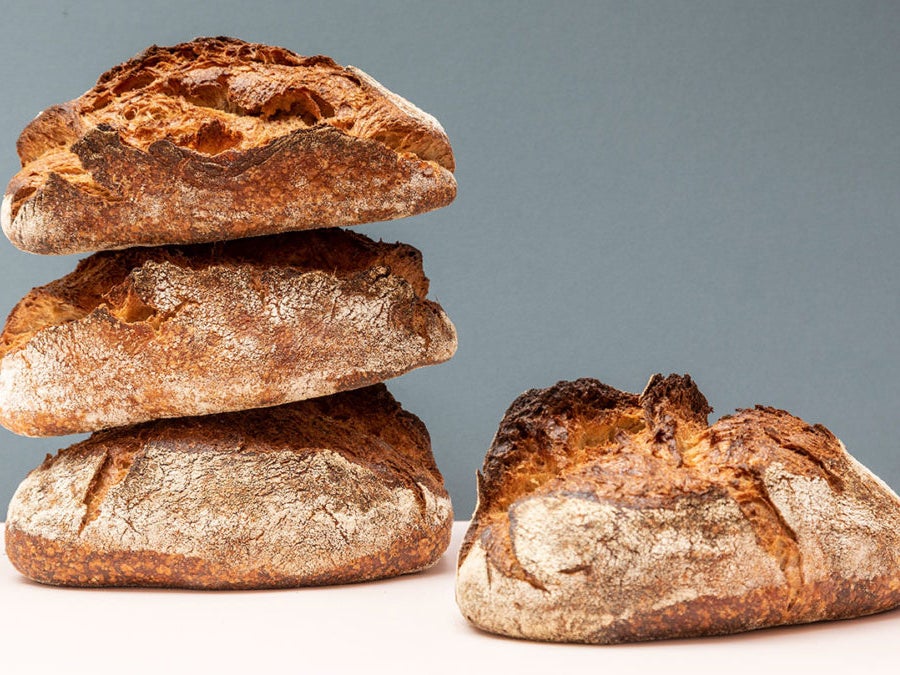How extreme weather is affecting UK wheat crop - and what it means for bread prices
Poor wheat harvest predicted this year following storms and droughts during growing period, meaning higher prices

The National Farmers’ Union (NFU) warned earlier this month that the UK’s wheat harvest this year could be the worst since the 1980s, as the growing season was plagued by extreme weather conditions.
According to the Agriculture and Horticulture Development Board (AHDB), this summer’s wheat crop is expected to be down by nearly 40 per cent compared to last year. A wheat yield of 10 million tonnes has been predicted this year – six millions tonnes less than 2019.
After a month of non-stop storms in February, which was the wettest on record for England, Wales and Northern Ireland, followed by a very hot and dry spring that resulted in droughts in many parts of the UK, farmers were also recently forced to delay harvesting their crops due to heavy rain in August.
This has resulted in a rise in the price of wheat as farmers struggle to recuperate from the poor crops. Consequently, the price of flour is expected to increase, said Alex Waugh, who runs the National Association of British and Irish Millers (NABIM).
He told BBC News wheat prices are already up by £40 per tonne, which marks an increase of over 20 per cent.
But a rise in the price of flour will not necessarily translate into the price of bread on supermarket shelves suddenly jumping, says David Eudall, head of market specialists at AHDB.
Mr Eudall told The Independent that although it might make sense for higher prices of wheat and flour to push up the price of bread for consumers, this isn’t the case – at least, not for supermarket loaves, which account for the majority of bread bought in the UK.
“It comes down to the ingredients and structures that are involved in producing a loaf of bread,” he said. “In a normal loaf of bread, the value of wheat is only around 11 per cent, which accounts for a small proportion of the total cost of a loaf.
“There are other factors we have to account for, such as production costs, marketing, transportation. That’s what affects the cost of bread on the shelf, not the price of wheat.”
In fact, the price of bread has gone down this year. Currently, the average price is £1.40 per kilogram of bread, but at the start of the year, it was £1.44 per kilogram. Low inflation rates because of the recession the UK is facing due to the coronavirus pandemic is also likely to keep bread prices low, said Mr Eudall.

However, the picture is likely to be different for smaller bakeries that sell artisan or speciality loaves..
“These bakeries need to source specific flours and if you’re thinking about artisan sourdoughs bakeries producing small batches, they don’t have the economies of sales that supermarkets do,” said Mr Eudall.
“So the smaller guys with high costs may have to pay a higher price to do that and that may impact the price of speciality breads and artisan breads – but that accounts for a very small proportion of consumers.”
But the rising temperatures due to the climate crisis has led to greater volatility in the yield farmers have been getting from crops in the past decade. This weather-induced lack of stability is going to get worse, with the Met Office warning the UK is getting hotter and hotter and rainfall records are being broken more regularly in recent years.
NFU vice president Tom Bradshaw said farmers had faced “very challenging conditions” over the past year, adding that the combination of bad weather “demonstrates the volatility that can be experienced across a farming year and why food production and food security must be taken seriously”.
Mr Eudall also said that if the UK sees a continued level of volatility from weather patterns, “it creates a boom-bust cycle of crop production”. This means some years may produce an ample harvest due to good weather, whilst others, such as this year, may “really hurt our crops”.
“It does create more volatility in production and price, and the whole supply chain needs to be aware of this and manage it,” he said.
“The changing climate will lead to an increased cycle of large crop years followed by supply issues, but what the market needs is consistency.”
Join our commenting forum
Join thought-provoking conversations, follow other Independent readers and see their replies
Comments
Bookmark popover
Removed from bookmarks